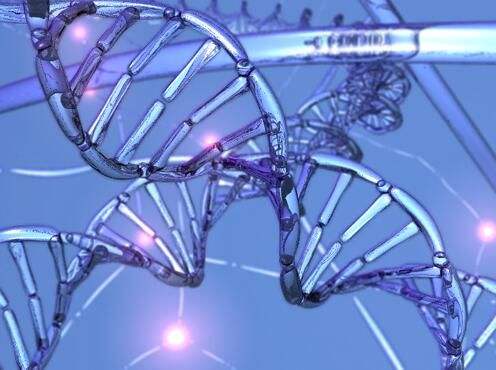Altogether, almost half of human genes — the largest proportion yet found in any organism — don't do anything at all, as far as we can tell, except reproduce themselves.
據我們所知�����,總共有近一半的人類基因——任何生物體內基因已知的最大比例——除了復制它們自己����,它們根本不做任何事情��。
All organisms are in some sense slaves to their genes. That's why salmon and spiders and other types of creatures more or less beyond counting are prepared to die in the process of mating. The desire to breed, to disperse one's genes, is the most powerful impulse in nature. As Sherwin B. Nuland has put it: "Empires fall, ids explode, great symphonies are written, and behind all of it is a single instinct that demands satisfaction." From an evolutionary point of view, sex is really just a reward mechanism to encourage us to pass on our genetic material.
從某種意義上講��,所有的生物都是其基因的奴隸�。這就解釋了為什么鮭魚����、蜘蛛以及其他數不清的生物在交配的同時也走向了死亡。繁殖后代��、傳遞基因的欲望是自然界最強有力的沖動���。正如謝爾文·B·紐蘭所說:“帝國分崩離析�����,本我破殼而出����,雄偉的交響樂筆下生成����,這一切的背后是一種要求得到滿足的本能。”從進化論的觀點看�,性本質上就是鼓勵我們將基因傳承給后代的一種機能�。

Scientists had only barely absorbed the surprising news that most of our DNA doesn't do anything when even more unexpected findings began to turn up. First in Germany and then in Switzerland researchers performed some rather bizarre experiments that produced curiously unbizarre outcomes. In one they took the gene that controlled the development of a mouse's eye and inserted it into the larva of a fruit fly. The thought was that it might produce something interestingly grotesque. In fact, the mouse-eye gene not only made a viable eye in the fruit fly, it made a fly's eye. Here were two creatures that hadn't shared a common ancestor for 500 million years, yet could swap genetic material as if they were sisters.
科學家們好不容易接受了這樣一個令人驚訝的事實�,即我們DNA的絕大多數不做任何事情。緊接著��,更意想不到的研究成果開始問世了�����。先是在德國,接著在瑞士�,研究人員做了一系列奇怪的實驗����,其結果讓人瞠目結舌�。他們將控制老鼠眼睛發育的基因植入到果蠅的幼蟲中。他們本來以為會產生某種有趣而怪異的東西�����,結果老鼠眼睛的基因不僅使得果蠅長出了一只老鼠的眼睛���,同時也長出了一只果蠅的眼睛��。這兩類動物在長達5億年的時間里分別擁有不同的祖先�,但是它們卻可以像姐妹一樣交換基因��。
來源:可可英語 http://www.ccdyzl.cn/Article/201908/592149.shtml











